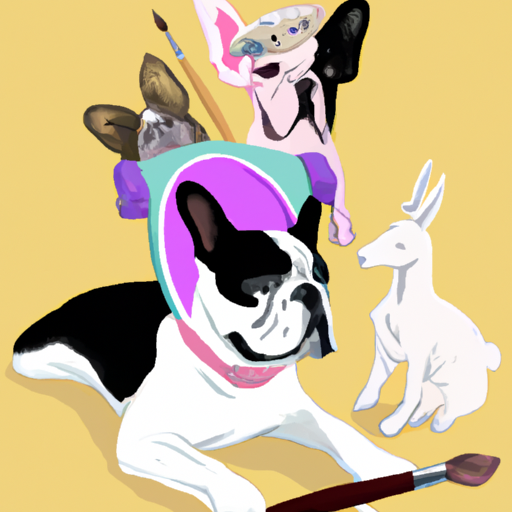It’s hard to resist the charm of a French Bulldog. Their bat-like ears, squished faces and compact bodies are distinctive features that have made them one of the most popular dog breeds in the United States. But have you ever wondered what dogs make a French Bulldog? In this comprehensive guide, we delve into the fascinating history and genetics that have shaped this adorable breed.
- Table of Contents
- Origins of the French Bulldog
- Breeds That Contributed to the French Bulldog
- Understanding the Genetics of French Bulldogs
- Common Health Issues in French Bulldogs
-
Frequently Asked Questions
-
Key Takeaways
- The French Bulldog has its roots in England.
- It’s a descendant of the Toy Bulldog and has influences from other unidentified breeds.
- Understanding the breed’s genetics helps in appreciating their unique features and health issues.
Origins of the French Bulldog
The story of the French Bulldog begins not in France, but in England. In the 1800s, lace workers in Nottingham, England, kept Toy Bulldogs as companions and ratters (dogs used to catch rats). These small, compact dogs were a local favorite. However, as the Industrial Revolution led to job losses, many lace workers migrated to France, taking their Toy Bulldogs along with them.
In France, the Toy Bulldogs were a hit. Their compact size and friendly temperament appealed to the French, who began breeding them. Over time, these dogs developed distinctive features, such as their trademark bat ears. They became so popular in their new homeland that they earned a new name: Le Bouledogue Francais, or the French Bulldog.
Breeds That Contributed to the French Bulldog
When it comes to the specific breeds that contributed to the French Bulldog, the waters get a bit murky. The primary contributor is undoubtedly the Toy Bulldog. They were smaller versions of the English Bulldog and were bred to be companions rather than bull baiters.
However, the French Bulldog’s distinctive bat ears aren’t a common feature in English Bulldogs. This has led to speculation that there were other breeds mixed in during the French Bulldog’s development. Some suggest terrier breeds, others suggest pug, but the exact breeds remain a mystery.
Understanding the Genetics of French Bulldogs
By understanding the genetics of French Bulldogs, we can gain a deeper appreciation for their unique features and health issues. For example, the breed’s short snout and compact skull – a condition known as brachycephaly – is due to a genetic mutation. This mutation, while it gives them their adorable squished faces, can also lead to health issues such as breathing difficulties.
In addition, French Bulldogs are a brindle breed. Brindle is a coat coloring pattern characterized by a brown base color with dark streaks. It’s a dominant trait in French Bulldogs and is likely a result of their Bulldog ancestry.
Common Health Issues in French Bulldogs
Like all breeds, French Bulldogs are prone to certain health issues. As mentioned, their brachycephalic nature can cause breathing difficulties. They are also prone to hip dysplasia, a condition common in many small breeds. For more detailed information on the health issues of this breed, here is a comprehensive guide that could be beneficial.
Furthermore, due to the breed’s popularity and high price tag, there has been an increase in irresponsible breeding practices. This has led to an increase in health problems in the breed. Therefore, if you’re considering getting a French Bulldog, it’s important to do your research and choose a reputable breeder.
Frequently Asked Questions
- What is the lifespan of a French Bulldog?
The average lifespan of a French Bulldog is between 10 to 12 years. However, this can vary depending on their health and care.
- Why are French Bulldogs so expensive?
French Bulldogs are expensive due to their breeding difficulties. They require artificial insemination and often, a cesarean section to give birth. Additionally, a litter usually consists of only three puppies.
- Are French Bulldogs good family dogs?
Yes, French Bulldogs make excellent family pets. They are known for their friendly and patient nature. They get along well with children and other pets.
- What is the personality of a French Bulldog?
French Bulldogs are known for their outgoing and affectionate personalities. They are also quite playful and enjoy the company of their human families.
Understanding the origin and genetic makeup of French Bulldogs allows us to appreciate their unique features and also be aware of their potential health issues. Their charm and distinct appearance are a testament to their rich history and diverse genetic background. So, whether you are a current French Bulldog owner, considering adopting one, or simply a dog enthusiast, knowing what dogs make a French Bulldog enriches your understanding of this beloved breed.



